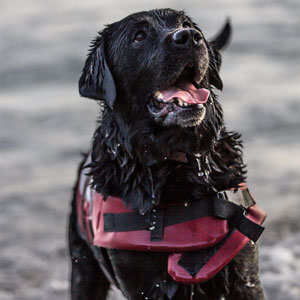Service Dog Training Houston TX: Puptown Houston’s Path to Assistance
Are you in search of a dog who will be there for you through thick and thin, always ready to lend a helping hand? Well, your search ends here at Puptown Service Dog Training Houston TX! We are proud to offer a top-notch training program for service dogs that will not only provide you with a companion but also offer invaluable assistance when you need it the most. Join us on this journey as we walk beside you every step of the way, making sure that your experience is truly life-changing.
Embarking on the Path to a Service Dog
We know that a service dog is not a pet; they play a crucial role in their owner’s life, offering essential assistance and unwavering support. You might be wondering, What are the requirements to qualify for a service dog in Texas?
To be eligible for a service dog at Puptown Houston, individuals must meet criteria. We work closely with people to evaluate their needs and determine if they qualify. Our team of expert trainers and our thorough assessment process guarantee that those who truly require a service dog will be matched with one that fits their needs perfectly.
You can visit our Service Dog Training page for more information.
Nurturing Skills from a Tender Age
Many people often wonder, “When is the ideal time to begin training a service dog?” Here at Puptown Houston, we firmly believe in starting the process. Our puppy training program focuses on laying the groundwork for service dog training by taking advantage of puppies innate curiosity and enthusiasm for learning. We prioritize socialization, exposing them to environments, and teaching them basic obedience skills as vital elements of our puppy program.
As your pup matures, they effortlessly transition into our Lodge & Learn program. This immersive opportunity enables them to reside and acquire knowledge in a nurturing home setting, fostering life skills and advanced training. The remarkable outcomes of our Lodge & Learn program are exemplified by our graduates. self-assured and eager to create a positive impact.
The Puptown Houston Experience
At Puptown Houston, we go above and beyond training. Our focus is on providing a rounded experience for dogs with our boarding and daycare services. Whether it’s a visit or a longer stay, our facility ensures that your beloved furry friend has an engaging environment where they can play, socialize, and receive personalized care.
Join the ranks of satisfied clients whose dogs have graduated from our Lodge & Learn program. These success stories exemplify the dedication of our trainers and the potential within every dog. Witness the transformation and accomplishments of these remarkable canines on our Dog Graduates of our Lodge and Learn page.
Discover the Puptown Difference
Your journey towards a skilled service dog begins with a single step. Trust the expertise of Puptown Houston’s trainers, who are passionate about shaping dogs into compassionate, capable companions. Visit our Service Dog Training page to learn more about this life-changing program.
Ready to take the plunge? Check out our Lodge & Learn option, an immersive training experience that nurtures your dog’s abilities. For those with adorable puppies, our Puppy Training Program sets the stage for a promising future.
Connect with us on our Google Business Page to stay updated on the latest from Puptown Houston. We’re excited to be your partner in transforming the lives of both dogs and their owners.






